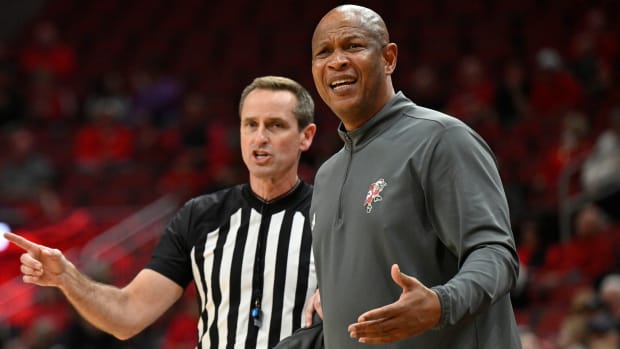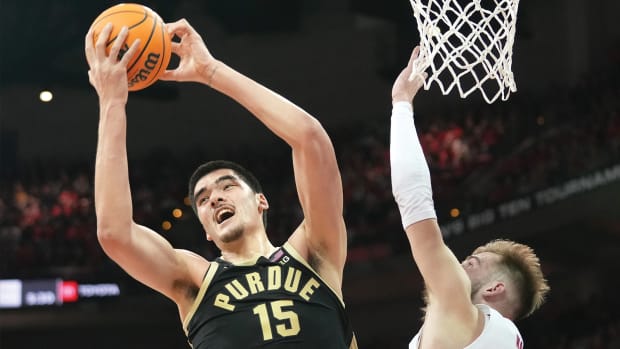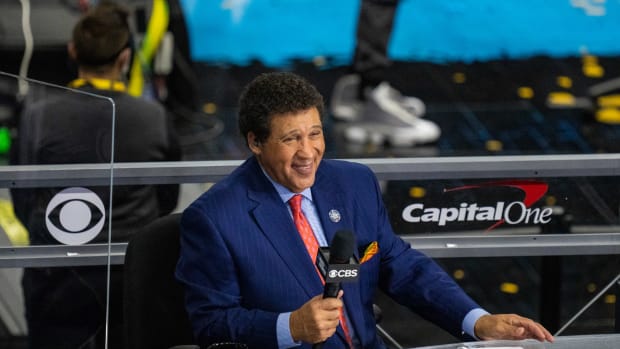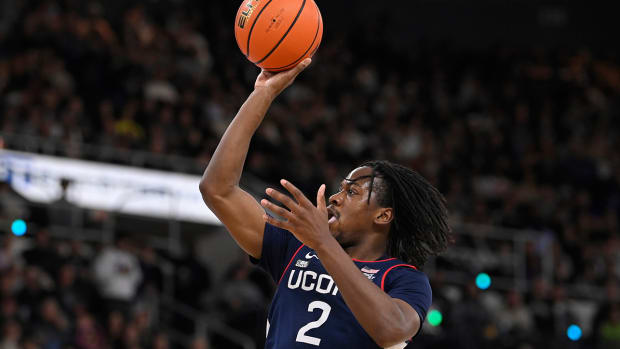Coaches Express Concerns Over NCAA's One-Time Transfer Proposal
Mark Richt isn’t your normal college football coach.
He’s one of the nice guys, according to those in the industry. He’s genuine, forthright and authentic. Those who know say he’s never really embraced the darker side of the game—the sneaky politics and slimy tactics. He’s not to be confused with the coaches who remind you of greasy car salesmen, those who bathe in the muck of an industry that can be downright dirty sometimes.
But on Monday afternoon, Richt, now retired and serving as a TV analyst, did have something in common with his coaching brethren: He is against an NCAA proposal announced Tuesday to allow players once in their college career the chance to transfer and compete immediately at their new school.
“I know, I have an idea,” Richt wrote in a message that immediately went viral, one lambasted by many pro-player media and fans. “You recruit and develop players and when I think they’re good enough I will poach them from your roster! Welcome to what the new normal will look like in college football!”
If the NCAA Division I Council approves the proposal in April, first-time transfers starting in the 2020 academic year would no longer have to endure the long-standing “year-in-residence” in their first season at their new school. The proposal is being fast-tracked. Because it is a “criteria change” to the NCAA waiver process and not a new “rule change,” it can avoid the regular legislative cycle and take effect well before the NCAA convention next January.
The idea of a one-time open transfer has gained steam recently in a time when the NCAA is under attack—from even the highest levels (ahem, Congress)—over players’ rights. This past fall, the Big Ten first proposed the one-time transfer legislation, and the ACC followed Monday with a statement supporting it. However, the vast majority of D-I coaches do not agree, says Todd Berry, the executive director of the American Football Coaches Association.
In fact, coaches have shown “unanimous” opposition to the idea at AFCA conventions for the last three years. And there are three main reasons why, Berry outlines: (1) the freedom to transfer and play immediately could lead to quick, rash decisions players eventually regret; (2) transfers, according to NCAA data, are less likely to graduate than non-transfers; (3) and as Richt points out in his tweet, this proposal pushes college football closer to a free agency, with coaches poaching from one another’s rosters even more than they already do.
“The (rule was originally) put in to keep universities from recruiting off other campuses,” Berry says in an interview with Sports Illustrated on Tuesday. “That would be a reality if all the sudden you said a one-time transfer.” The coaches have been mostly clear on their approach to this idea for a few years, Berry says—they stand against it. Because this is a touchy players’ rights issues, many of them are hesitant to speak on it. That’s where Berry, a former coach himself, comes in.
“We’ve been having this discussion for a long period of time. We were engaged and we talked about it every year,” Berry says. “Our head coaches on every level voted on these things. We were unanimous across every level. We’ve had these discussions privately and collectively. This is the feeling and concerns we have. I’ve expressed what the sentiment is as a group.”
Not all coaches are necessarily against it, though. In fact, Michigan coach Jim Harbaugh pitched the proposal through Twitter last summer. “My belief is that a one-time transfer should be allowed for all student-athletes,” Harbaugh wrote in a July tweet.
The NCAA has tied this proposal to its transfer waivers, a subjective process that’s come under fire recently for inconsistencies. A one-time transfer policy could significantly reduce waiver requests, but not all players will be eligible. They must meet four benchmarks to transfer and play immediately: (1) receive a release from their previous school; (2) leave their previous school academically eligible; (3) maintain their academic progress at their new school; and (4) leave under no disciplinary suspension.
While the Big Ten and ACC have made their intentions clear from an administrative level, other leagues have remained somewhat mum. Meanwhile, the coaching community, Berry says, has great concerns. Berry did not expect the NCAA’s announcement on Tuesday. It was something that “shocked” him. A long-discussed matter, he was under the impression that many school and conference officials had for now shelved such a proposal. “Everybody seemed to be on the other side of this coin last summer, but something has happened recently,” he says. “I don’t know what the impetus is in these thoughts changing.”
One thing is certain: Players’ rights have never been a hotter topic. The issue over athlete compensation found its way to Capitol Hill, where last week lawmakers grilled NCAA president Mark Emmert—not only on name, image and likeness, but on a host of other issues that they believe are unfair to players.
The discussion went well beyond compensation. One senator even called for a “far-reaching fundamental reform” to college sports. Another senator held a terse exchange with Emmert on both athlete healthcare and one-year scholarships. Told that a school can choose not to renew a player’s scholarship each year, Sen. John Tester from Montana snapped to Emmert, “That’s a problem.”
Athlete compensation is well on its way to happening. The NCAA plans to release a report in April on changes to its policies to allow players to profit from their name, image and likeness. The one-time transfer rule could complicate matters even more, Berry says. “You go with a one-time transfer and add NIL,” he says, “kids are going to be going for whoever pays them the most money. It’s a real concern for our coaches. You give them the one-time transfer and give them opportunity to negotiate an (endorsement) deal across the spectrum…. it’s free agency.”




